Featured Work
Most of my recent work has been engineering related. Developer work will be coming soon.

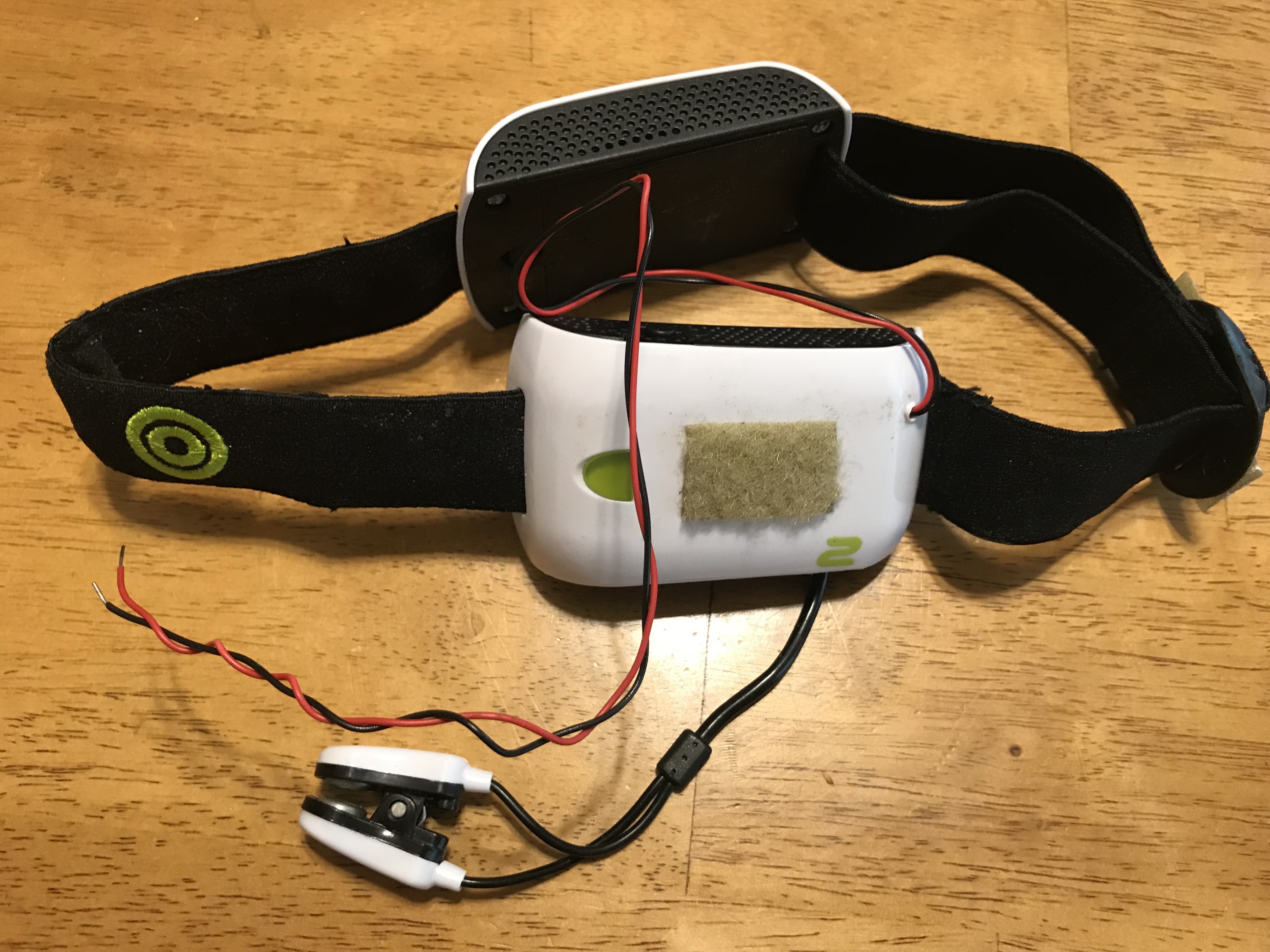
Haptic Reloaded
Objective:
Research, design, and prototype a low-cost, sustainable prosthesis with feedback for upper extremities, working towards making prosthesis' available to anyone that needs them.
Sponsored by: Electro Standards Laboratories and NeuralPC Lab of University of Rhode Island.
Haptic Reloaded
Objective:
Research, design, and prototype a low-cost, sustainable prosthesis with feedback for upper extremities, working towards making prosthesis' available to anyone that needs them.
Sponsored by: Electro Standards Laboratories and NeuralPC Lab of University of Rhode Island.
A multi-disciplinary project involving neural, electrical, and basic biomedical and mechanical engineering. Stage one consisted of researching and constructing a paradigm exploring the somatosensory response to vibration stimuli on the subjects upper extremities. Research of prior experiments concluded that vibration intensity was subjectively the greatest when the stimuli was localized on the subjects median nerve. Research also showed that the subjects ability to localize stimuli was greatest when applied near joints, such as the wrist and elbow.
Pacinian corpuscles, which are nerve endings in the skin responsible for sensitivity to vibration and pressure, are most sensative to stimuli presented at approximately 250Hz. Meissner corpuscles are nerve endings in the skin responsible for sensitivity to light touch, and have their highest sensitivity when sensing vibrations between 10-15Hz.

Median Nerve, MilitaryDisabilityMadeEasy.com (2013)
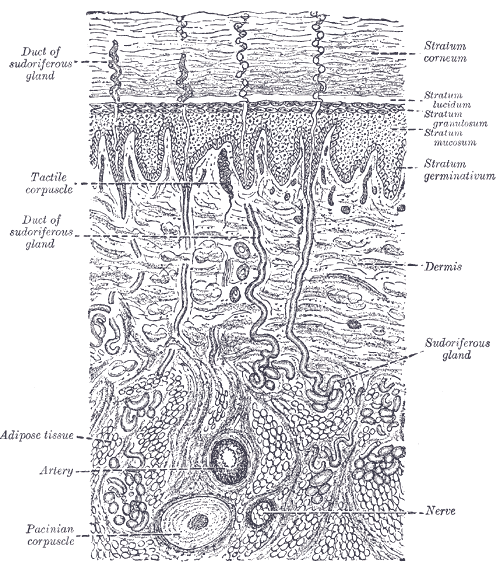
Cross-Sectional View of Skin, Henry Gray (1918) Anatomy of the Human Body
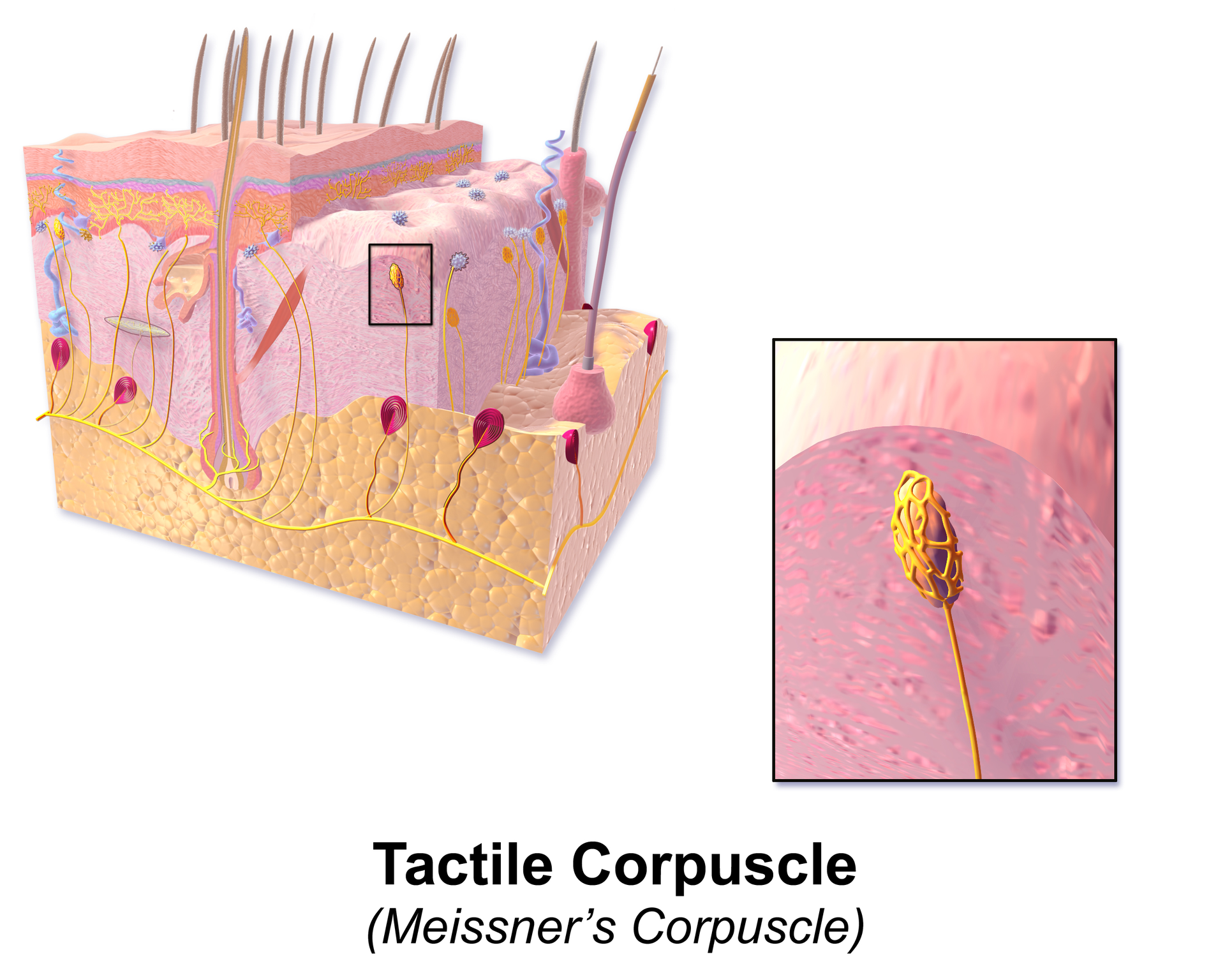
Magnified Meissner's Corpuscle, Medical Gallery of Blausen Medical (2014)
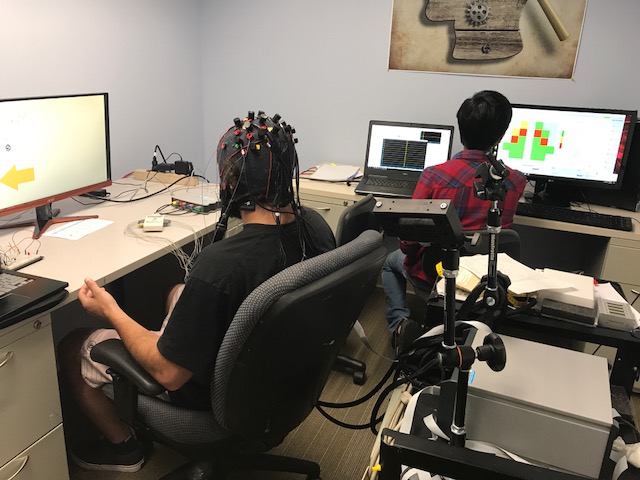
EEG and fNIRS Data Collection, NeuralPC University of Rhode Island (2017)
Due to sampling limitations on the EEG, the lab opted to providing a 21Hz, modulated by 128Hz, vibration stimuli on the subjects' wrists. Frequency analysis of the collected EEG data showed peaks in the beta waves spectrum, specifically at 21Hz, in channels located near the subject's somatosensory cortex. Analysis showed the amplitude of the transform to be greater in the contralateral hemisphere from the wrist which was presented with the stimuli.

EEG Channels Recording, NeuralPC University of Rhode Island (2017)

fNIRS Signal Strength, NeuralPC University of Rhode Island (2017)
This stage of the project is still in development. I will explain in further detail upon its completion.
MindFlex EEG
Objective:
Control electronics with your mind. Personal hobbyist project exploring the basic workings of EEG's and what consumer applications they may have. Project used EEG and basic body movements to control a TV remote system. Could simply be repurposed to control other electronics.
MindFlex EEG
Objective:
Control electronics with your mind. Personal hobbyist project exploring the basic workings of EEG's and what consumer applications they may have. Project used EEG and basic body movements to control a TV remote system. Could simply be repurposed to control other electronics.
MindFlex by NeuroSky is an electronics game containing three main components: a MindFlex EEG headset, a MindFlex base, and foam balls. Within the base are fans and when the fans spin the foam balls levitate upon them. The headset controls the fans, so with your mind you are able to levitate objects. The users attention controls the speed of the fans, so as you are more concentrated the ball levitates higher and as you become distracted the ball returns to the base platform. An image of the original MindFlex Duel game is displayed to the right.
MindFlex by NeuroSky is an electronics game containing three main components: a MindFlex EEG headset, a MindFlex base, and foam balls. Within the base are fans and when the fans spin the foam balls levitate upon them. The headset controls the fans, so with your mind you are able to levitate objects. The users attention controls the speed of the fans, so as you are more concentrated the ball levitates higher and as you become distracted the ball returns to the base platform. An image of the original MindFlex Duel game is displayed below.
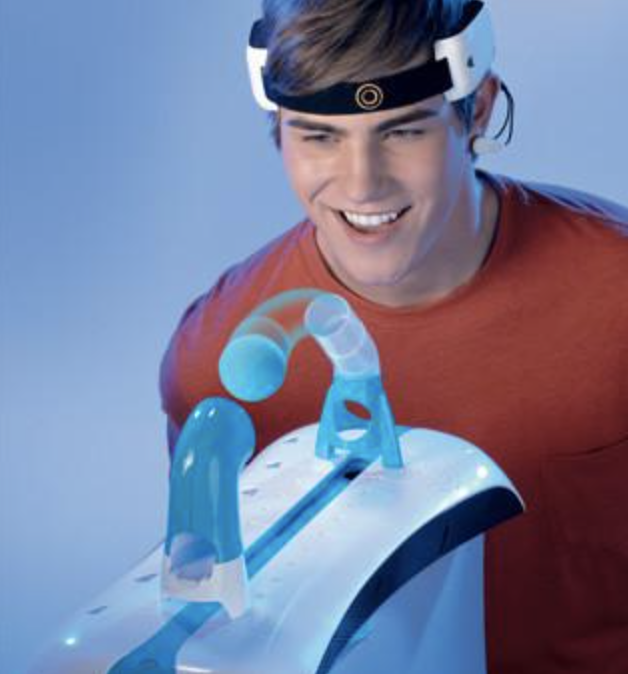
Original MindFlex Duel Game, NeuroSky MindFlex
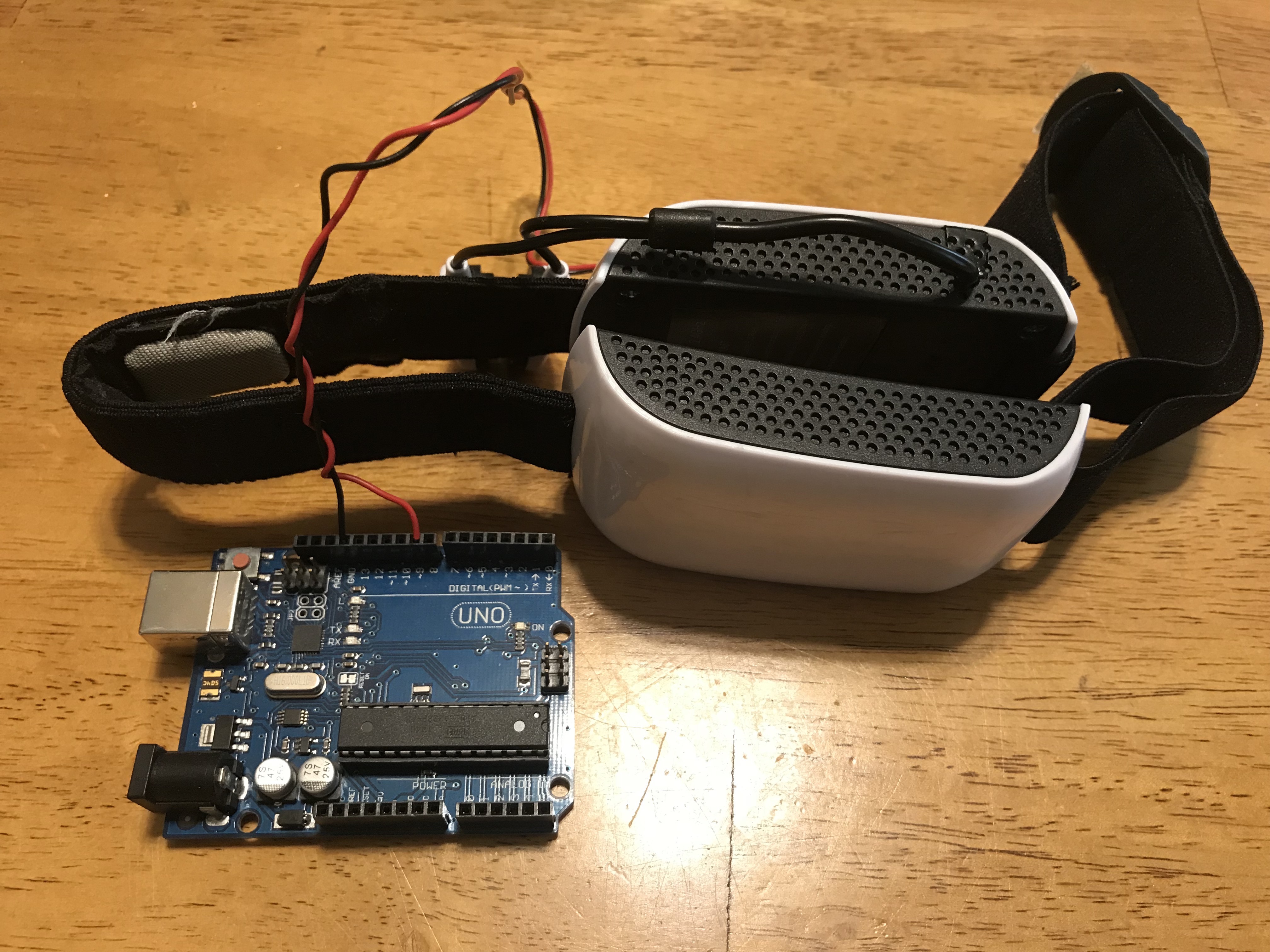
Repurposed MindFlex EEG and Arduino Microcontroller System
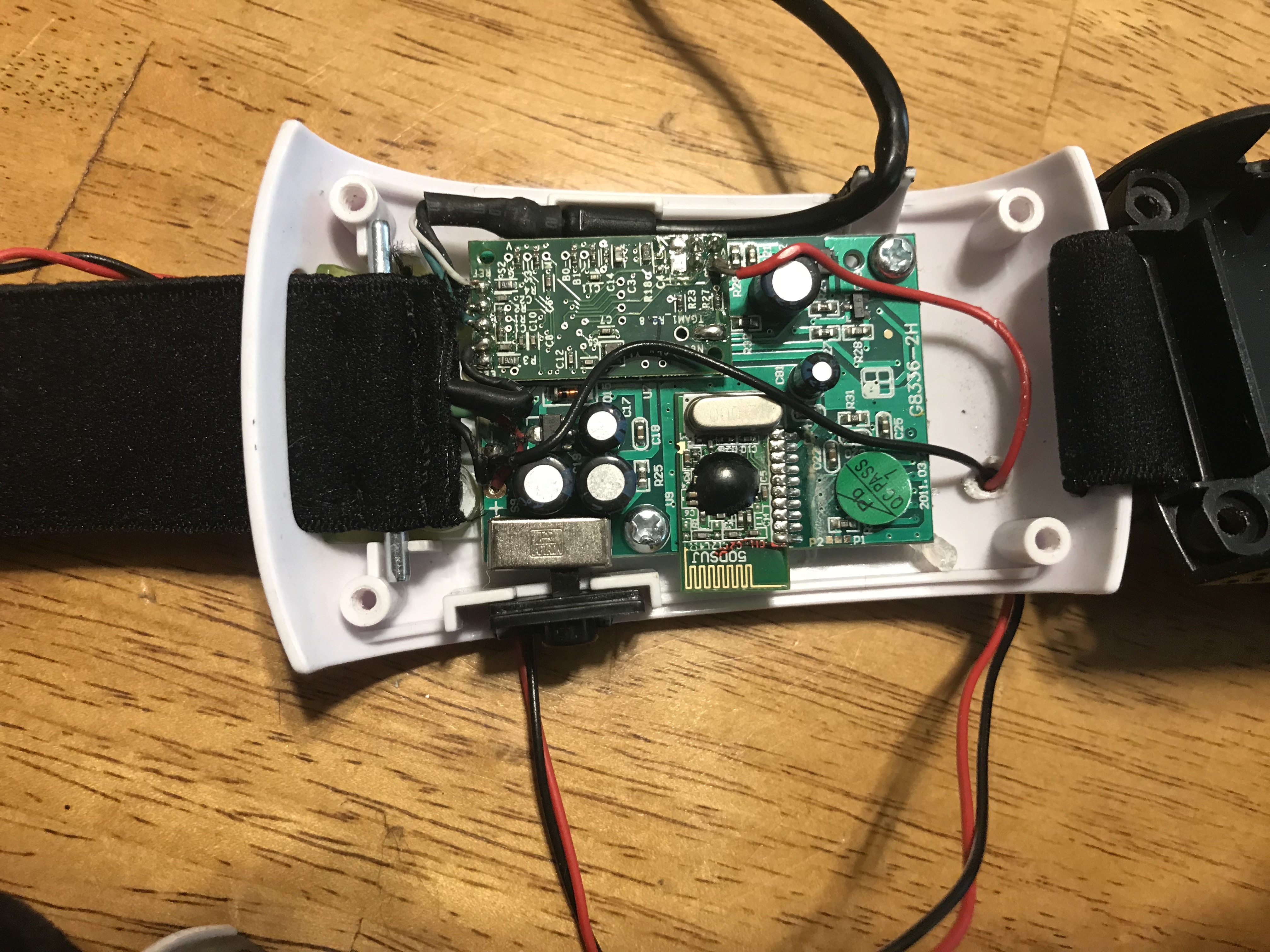
MindFlex Circuitry with Jumper Wires
Mind Controlled LEDs Demo
EEG data was used to control the LEDs on/off state and an accelerometer was used to control which LED was selected.